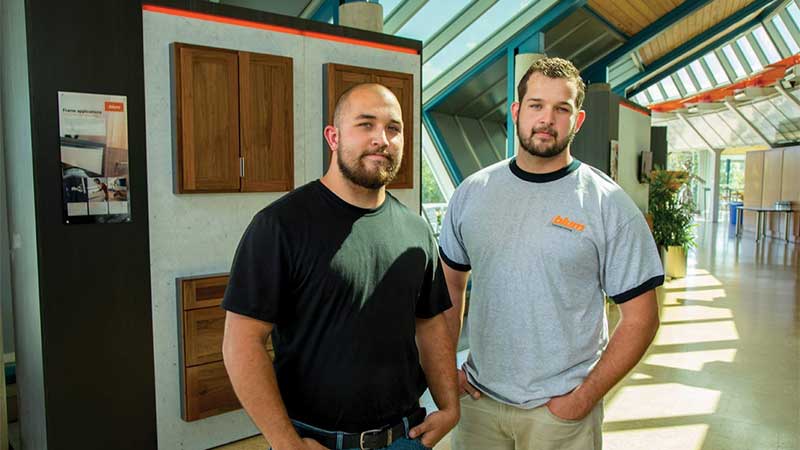
As technology and artificial intelligence bring sweeping changes to the modern workplace, workers must understand the need to develop their knowledge, skills, and abilities for human work throughout their lives and careers.
That will require our existing training and education programs to adopt new methods and expand their capacity to accommodate millions more lifelong learners than the current systems are designed to serve. But it will also require workers to own and be responsible for their own learning in the same way they are for their health. By that, I mean that workers will need to know what they know and can do clearly enough to describe it to current and potential employers.
Two men from the Charlotte, N.C., area, Rodney Owens and Nicholas Kwiatkowski, show how to take ownership of personal learning and enhance skills in ways that have helped them find work that is both financially and emotionally rewarding.
Owens has made the transition to human work by combining technical and people skills. He had spent a quarter of a century building a business customizing cars and motorcycles. But as he says, “it felt like there was something missing.”
So in 2013, at age 40, Owens decided to pursue a degree at Central Piedmont Community College. He sped through the program and earned an associate degree in computer-integrated machining with a perfect 4.0 grade-point average.
While a student, Owens showed he could work well with fellow students, most of whom were much younger and saw him as a role model. Central Piedmont asked Owens to teach. He not only is a good teacher, but fellow students look to him for both technical training and life lessons. He is “an example to all students that at any stage of life, you can return to school and achieve anything you put your mind to,” said Eric Easton, a program supervisor at Central Piedmont. “Rodney is living proof it’s never too late to continue one’s education.”
Kwiatkowski managed an Italian restaurant after graduating from high school in Mount Holly. Just out of high school, he didn’t “think it was viable to go to school, waste money, pile up student debt and not know what I wanted to do.”
But thanks to his younger brother, Lukas, Kwiatkowski found a new job and a path to an entirely new career at Blum Inc., a manufacturer of high-tech latches, hinges, and slide components for cabinetry. Nick applied three times before being hired as a press operator at Blum’s facility in Stanley, N.C. But he had higher goals, seeking to follow his younger brother into the apprenticeship program at the company.
After working a year at Blum, Nick gained admission to the apprenticeship program in 2017. The program, modeled after successful training regimens in Europe, requires 8,000 hours of training and education for each apprentice, including 6,400 hours at the company and 1,600 hours of classes at Central Piedmont. Upon graduation, an apprentice receives an associate degree and a journeyman’s certificate – credentials that will clearly define what he has been trained to do. The program demonstrates the commitment of Blum, which is based in Austria, to develop a talented workforce. Each apprentice represents a $175,000 investment from the company to provide pay and benefits during the training. Graduates are guaranteed employment, and Blum benefits, too: Five years after graduation, 75 percent of the program participants remain with the company.
“We guarantee you employment. We guarantee you a salary of $36,000 at the end of the program,” said Andreas Thurner, the apprenticeship manager at Blum. “Who does that? Who pays for your college and then gives you a guaranteed job?”
Kwiatkowski, now in his mid-20s, spends four 10-hour days at Blum and goes to classes at Central Piedmont one afternoon a week. After two years in the program, he and his trainers decided he would be best suited to be a tool-and-die maker. With their support, he was on schedule to finish his apprenticeship, earn a degree, and set a better course for his future.
“Honestly, I’m surprised not more companies do this,” said Kwiatkowski. “Hiring outside people with a degree is OK, but why not invest in what you have? If you have employees who are bright and can be trained, why not train them? I’m sure there are tons of people out there who would like to have a chance to go through a program like this.”
As I argue in my new book, “Human Work in the Age of Smart Machines,” our nation needs to expand its capability to meet adult learners at different stages of their lifetime learning – whether mature adults like Owens or ambitious 20-somethings like Kwiatkowski. Programs designed to serve such students will play an increasingly vital role in preparing people for “human work” – the work that machines will never be able to do.
